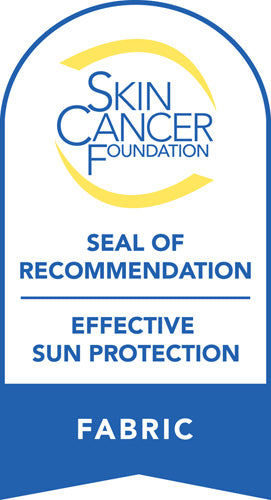How Does the Sun and UV Cause Cancer?
According to the American Academy of Dermatology, about 20% of Americans will develop skin cancer at some point in their lives. Nearly 10,000 people are diagnosed with skin cancer on a daily basis.
There are some instances in which people are diagnosed with skin cancer without being exposed to the sun and its harmful UV rays. But more often than not, skin cancer is caused by sun exposure.
There are several different types of skin cancer caused by the sun. You should learn all about them so that you fully understand the dangers of being diagnosed with skin cancer from the sun.
In this article, we're going to break down the various kinds of UV skin cancer to help show how the sun and its UV rays can take a toll on your skin. We're also going to explain what you can do to reduce the chances of you ever being diagnosed with skin cancer caused by the sun.
How Is Skin Cancer Caused by the Sun?
People have known that too much sun can be very bad for their skin for centuries now. In fact, there is some evidence that suggests people may have first started to recognize skin cancer in about 2,500 B.C.
But it wasn't until the 19th century when the modern microscope was first invented that skin cancer was officially discovered. Different forms of skin cancer were developed throughout the 1800s and 1900s by a number of different scientists.
A few of these types of skin cancer weren't caused by the sun. But as researchers learned more and more about skin cancer, it became clear that the most prominent kinds of skin cancer seemed to be closely connected to sun exposure.
Researchers eventually found that when people exposed their skin to the sun and, more specifically, its harmful ultraviolet rays, it could lead to them developing cancer. These UV rays can damage the skin and lead to abnormal growths of skin cells on a person's skin, which is essentially what skin cancer is.
The Types of Skin Cancer Caused by Sun Exposure
As we just alluded to, there are several types of skin cancer that aren't caused by the sun. Kaposi sarcoma, Merkel cell carcinoma, and sebaceous gland carcinoma are a few examples of this.
But the vast majority of the people diagnosed with skin cancer have skin cancer caused by the sun. There are three main types of skin cancer that the sun and its UV rays can cause. They're called basal cell carcinoma, squamous cell carcinoma, and melanoma.
Next, we're going to discuss each of these three types of skin cancer caused by the sun and point out some of the key symptoms that will usually come along with each one.
Basal Cell Carcinoma
Of the three types of skin cancer caused by the sun that we're going to touch on today, basal cell carcinoma, or BCC, is the most common. Between 3 and 4 million Americans are diagnosed with BCC each year.
BCC has such a large impact on Americans every year because it can affect those with all different skin types. Some of the symptoms of BCC are:
- Waxy bumps that appear on the skin's surface
- Flat lesions that are either skin-colored or brown
- Sores that scab, heal, and then come back again
If you have even the slightest suspicion that you might have BCC, it would be worth making an appointment with a dermatologist ASAP. It's rare for this type of skin cancer to spread to other body parts, but you should still aim to have it treated right away.
Squamous Cell Carcinoma
It is possible to develop squamous cell carcinoma, or SCC, on parts of your skin that haven't been exposed to the sun, especially if you have darker skin. But SCC is most often found on the face, ears, and even hands of those who have allowed the sun and its UV rays to shine down on their unprotected skin for too long.
Here are the symptoms you'll typically see when you have this type of skin cancer caused by the sun:
- Red nodules on your skin that feel firm
- Flat lesions on your skin that have a crusty appearance
Just like with BCC, you won't want to hesitate to see a dermatologist if you think you might have signs of SCC showing. This is another very treatable form of skin cancer if you're able to catch it on the earlier side.
Melanoma
Unlike both BCC and SCC that tend to form on sun-exposed parts of the body, melanoma can appear almost anywhere on your skin. Melanoma can also affect those with any skin type, and it isn't always caused solely by sun exposure.
Here are the symptoms you may see if you have this type of skin cancer:
- Big brown spots that are often filled in with even darker speckles
- Moles that change size and/or color over time
- Small lesions on the skin that are either blue, pink, red, white, or another color
- Lesions that itch and/or burn regularly
Melanoma is a lot less common than the other two types of cancer caused by the sun. But it's the deadliest form of it. About 8,000 Americans die from melanoma each year.
How to Avoid Skin Cancer Caused by the Sun
Now that you're familiar with the types of skin cancer caused by the sun, let's segue into speaking about how you can avoid them. There are proactive steps you can take to greatly reduce the chances of you ever being diagnosed with skin cancer caused by the sun.
First and foremost, you should try to stay out of the sun as much as you can. Unless you need to be out in the sun during the day, your goal should be to remain in shaded areas as often as you can.
Here are a few other things you can do to steer clear of skin cancer:
- Wear sunscreen that is at least 15 SPF every day, including in the winter, when you know you might be exposed to the sun
- Put on hats when you're in the sun to provide shade for your face, ears, and neck
- Invest in a pair of sunglasses designed to protect your eyes from the sun's UVA and UVB rays
There is also a wide range of UV protective clothing that you should think about purchasing. This clothing will automatically stop the sun's UV rays in their tracks when you put it on and lower the chances of you spotting any skin cancer symptoms.
Why You Should Wear UV Protective Clothing in the Sun
Wearing UV protective clothing is one of the best things you can do to prevent skin cancer caused by the sun. It's a perfect choice for men, women, and children for a variety of reasons.
For starters, UV protective clothing will cover up large portions of your body when you're at the beach, by the pool, or in any other situation that might expose your skin to the sun. It'll also enable you to continue to swim, play, and relax without getting in the way.
But arguably the best part about wearing UV protective clothing is that it'll protect you from the different types of skin cancer caused by the sun without you having to think much about it. You won't have to be concerned about reapplying sunscreen all over yourself every time you jump out of the pool or break a sweat. Your clothing will keep on protecting you under any circumstances.
Where to Buy the Best UV Protective Clothing
Since skin cancer has turned into such a big problem for people these days, there are many companies that sell UV protective clothing. You should make it a point to only purchase UV protective clothing from companies that sell clothes that will protect your skin while also making you look super stylish.
BloqUV is a company you can count on to set you up with all the UV protective clothing you and your family will ever need. It'll stop you from having to worry about skin cancer caused by the sun without forcing you to sacrifice from a style perspective.
Order Our Clothing to Prevent Skin Cancer Caused by the Sun
At BloqUV, we sell some of the most fashionable UPF 50+ sun-protective clothing around. You'll love all the different options we can provide for men, women, and children.
You can dramatically reduce your chances of having to deal with skin cancer caused by the sun by investing in our clothing. We would love to fulfill an order for you today so that you can go out in the sun from now on without a care in the world.
Contact us now if you have any questions about our UV protective clothing.



